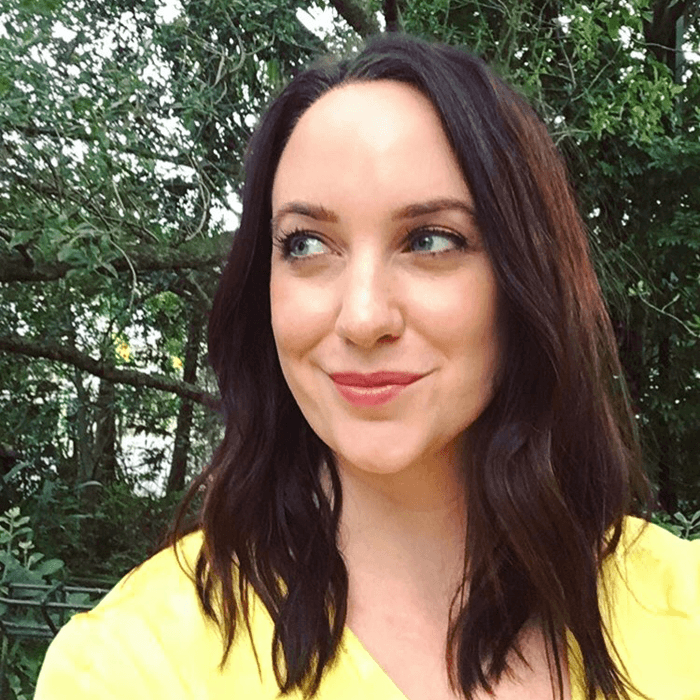You might have seen Eden Bradfield talking about stocks on TikTok or Instagram and wondered: who is this guy? Gabi Lardies meets the investment analyst and Peter Jackson lookalike to find out.
Eden Bradfield points at a dark lump of foam that had been cut up to look like volcanic rock from the slopes of Rangitoto. That spiked mutant (art piece?) is to be my seat. Meanwhile, over the glass coffee table, he sits on a leather recliner – surely designer – which even has a little detachable pillow behind his neck. We are in the Elevation Capital office, where Bradfield has recently become a portfolio manager, in a slightly awkward corner of Newmarket by the motorway on-ramp. Everything is shiny and pointed – polished concrete, chrome tubes, glass tabletops. Even the space itself is shaped like a cake slice.
Bradfield is a finance guy. He spends his days researching companies, thinking about the value of shares and trying to buy quality stocks at a good price. He also spends his days posting commentary on Instagram, TikTok and Substack. His reels have him lounging on a public bench, dancing in front of a fountain, talking to himself on “Late Night Eden” and posing for a selfie in the elevator mirror – all while talking about the stock market in plain, straight-talking language. Instead of tables of ever-changing numbers divorced from physical reality, through Bradfield’s explanations the stock market becomes companies that are run by people and sell things. In a newsletter he writes for BlackBull Research, he asks why shiny blocks of metal are popular, why Doc Martens are back and says hello to “stagflation, my old friend”. With that approach, he has gown the subscriber base from around 300 in 2023 to 10,000 today.
It takes 50 minutes for Bradfield to kind of answer the question I asked five minutes in: whether or not he thought he was “quite different” to other people in his field. Though we shouldn’t let our employment wholly define our existence, there’s something to be said about how people choose (to some extent) to spend over a third of their waking hours. The stereotype goes that people in finance wear plain suits with white shirts, are clean cut, assertive, kind of boring and speak in acronyms that normal people can never hope to understand. And then there’s Bradfield. He dresses like he’s in an indie guitar band: if you look closely there are designer crests on the labels of his clothing, but there’s a sense of scruffiness – though that might just be Bradfield’s somewhat unruly hair, constantly slipping down glasses or the plaster (cat scratch) on his forehead when we met.
The answer, in a round-about way, is yes. “It’s been an interesting journey through finance,” he says. “At the start, people were kind of like, ‘Who are you?’”
Bradfield’s finance origin story begins at the Caroline Bay Carnival, a yearly summer fixture in his hometown of Timaru. About 20 years ago, when he was 11 or so, he found a book at the bookstall he couldn’t put down. While his family were enjoying the usual things you associate with a carnival like rides and candy floss, the tween Bradfield was engrossed in a book about one of the most successful investors of all time and his business-driven investment strategy, The Warren Buffett Way. The obsession didn’t send Bradfield down the investment route right away. He studied as a violinist when he left school then worked as a chef because “I wanted to do something with my hands”.
In his early 20s Bradfield was living in Oamaru and started investing his own money into certain companies. As an interested nerd, he decided to email a few investment firms. He emailed a stock analysis of a company that he believed was a good pick – Williams Sonoma, a US family-run business that sells kitchenware and home furnishings. Part of his very first analysis reads: “I am a kitchen snob. I like nice things… WSM [Williams Sonoma’s trading code on the New York Stock Exchange] presents a curated selection of nice things in a way that understands the wants and needs of a very specific market.” Only one person replied to the email from the nerd in Oamaru – Christopher Swasbrook, founder of Elevation Capital, who eventually commissioned Bradfield’s first reports in finance and more recently invited him to become a shareholder and co-fund manager at Elevation Capital.
Williams Sonoma is up +480% or so since Bradfield wrote those lines. The pick still encapsulates many of the qualities Bradfield looks for when he invests in companies. He likes businesses that are partially family owned or operated, because “they tend to outperform – their skin is in the game, their interests are aligned with mine”. He is also still a snob who likes nice things, and so he has a particular interest in luxury fashion. “I’ve followed it for a long time, and I think fashion reflects the times, it reflects the zeitgeist.” Much of his online commentary is here: Prada buying Versace, Hermès’ Birkin bag and the empty Burberry, Gucci and Jimmy Choo shops on the basement level of the Westfield mall in Newmarket.
People who have read entry-level guides to investing have likely been warned to stay away from fund managers and stick to index funds like the S&P 500 because they will get a better return. Bradfield adds that there’s research that shows the stock accounts of dead people do better than when they were alive. But “not mine”, he said. His heroes – Terry Smith, Peter Lynch, Nick Sleep and still after all these years, Warren Buffett – are known to have outperformed the market. According to Bradfield, one of the problems (and there are others) of index funds is that wide brush with which they invest. It’s “too much diversification”. Sure, some of the 500 companies will perform well, but “how can you possibly know about 500 companies? I can’t.”
Bradfield prefers to spend time thinking about investing and researching, and he is always looking for those “good value” companies. The first thing Bradfield will do is look up a company on Glassdoor, a website where employees can anonymously review and rate their workplace. “I want to see what their employees think.” But constantly reading up on things doesn’t mean he is constantly moving money around or trying to make quick returns. He thinks the stock market, with its constant streams of information, tries to encourage activity and that there’s also a human instinct to tinker with things, to change things, but it’s often better to do less. If you’ve bought quality companies, the best thing to do is hold onto them. As funds grow, Bradfield mostly reinvests into the same companies. In terms of new investments, “I figure you can only make a few good decisions a year.”
So what does he think makes a good investor or fund manager? “You don’t have to really have a big IQ to be a good investor,” says Bradfield. “You just have to be very good with your nerves, quite patient and calm.” Leaning back on the leather recliner, he is softly spoken and careful. Behind me, his desk was covered in stacks of paper – printed out company reports, stock analyses and more things that most people wouldn’t have the attention span for. He consumes the same kind of reading material when he’s at home, too. He is not blasé about the $175 million in funds invested through Elevation Capital, saying it’s a “big honour”, but while much of the finance sector is “very serious, very reverential”, Bradfield thinks “you can be a bit silly and a bit fun”. But there’s something else too. “I think if you don’t think differently, then you’re not going to have differentiated results.”






